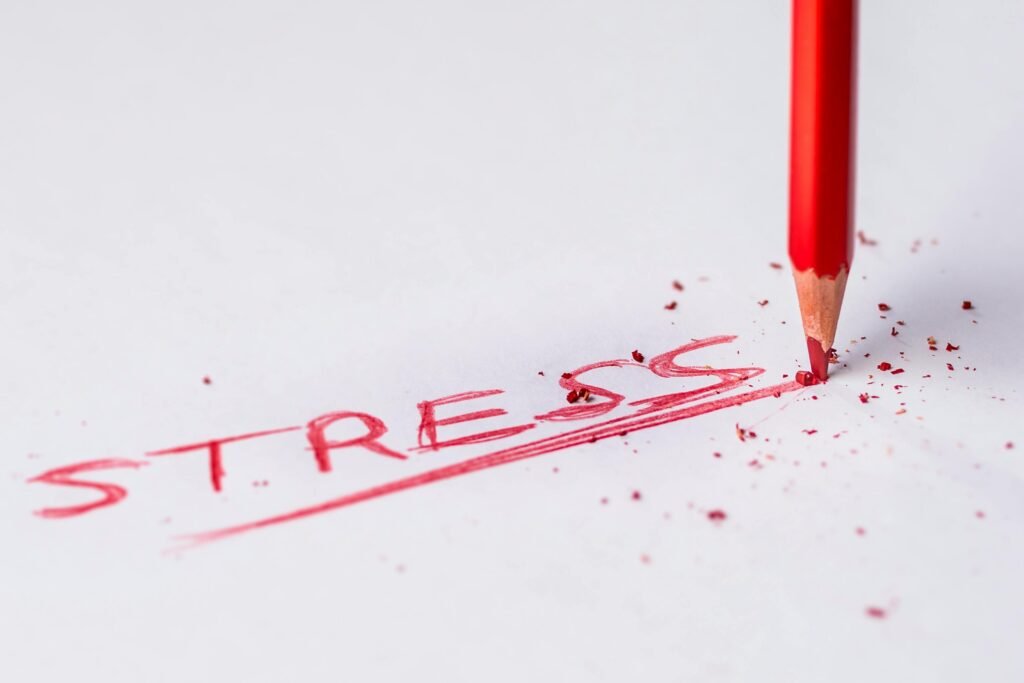
Navigating life’s daily stresses requires more than just endurance; it demands emotional resilience.
This term refers to the ability to adapt to stress, adversity, and setbacks while maintaining emotional equilibrium.
Emotional resilience is not something you either have or don’t have; it’s a skill that can be nurtured and developed.
Why is emotional resilience so important?
It serves as a buffer, protecting us from the adverse effects of stress.
When we’re emotionally resilient, we’re better equipped to handle life’s challenges without becoming overwhelmed.
We can bounce back from difficulties and maintain a more positive outlook, even in tough times.
Developing emotional resilience involves several key components.
One crucial aspect is emotional regulation, which is the ability to manage and respond to emotional experiences in a healthy manner.
This might mean taking a step back to breathe deeply when you’re feeling overwhelmed or reframing a negative situation to see it in a more positive light.
Another vital element is cultivating a sense of purpose.
Having clear goals and a sense of direction can provide motivation and a reason to persevere through difficult times.
Whether it’s personal aspirations or professional objectives, knowing your ‘why’ can serve as a powerful anchor during stressful periods.
Social connections also play a significant role in building emotional resilience.
Surrounding yourself with supportive relationships can provide a network of emotional support, making it easier to navigate stress.
Friends, family, and community can offer different perspectives, advice, and encouragement, all of which contribute to emotional strength.
Mindfulness practices, such as meditation and deep-breathing exercises, can significantly enhance emotional resilience.
These techniques help you stay present, reducing anxiety about future uncertainties and regrets about the past.
Mindfulness can improve your ability to handle stress by fostering a more balanced emotional state.
Additionally, it’s essential to recognize and embrace your strengths.
Everyone has unique qualities and skills that can be leveraged during challenging times.
Reflecting on past successes and the strategies that helped you overcome previous obstacles can boost your confidence and resilience.
Lastly, flexibility and adaptability are core to emotional resilience.
Life is unpredictable, and the ability to adjust your plans and expectations can make a significant difference in how you manage stress.
Being open to change and willing to adapt can help you navigate the complexities of daily life more smoothly.
By focusing on these components, you can build the emotional resilience needed to handle life’s inevitable stresses with greater ease and confidence.
Understanding Stress in Daily Life

Stress can emerge from various sources, such as work pressures, financial difficulties, and personal relationships.
These common stressors can have a profound impact on emotional health.
When faced with stress, the body’s physiological response includes the activation of the hypothalamic-pituitary-adrenal (HPA) axis, which can lead to heightened autonomic activation and inflammation.
High levels of mindfulness can positively affect brain regions associated with emotion regulation.
This suggests that mindfulness is a valuable tool for managing stress and improving emotional health.
It’s essential to recognize that stress is a part of life.
While we can’t eliminate it entirely, we can learn to manage it more effectively.
One way to do this is by understanding how stress manifests in our bodies and minds.
Physiologically, stress triggers the release of hormones like cortisol and adrenaline, which prepare us for a “fight or flight” response.
While this response can be beneficial in short bursts, chronic stress can lead to negative health outcomes, including anxiety, depression, and cardiovascular issues.
Mindfulness and emotional regulation techniques are particularly useful in mitigating these effects.
Regular mindfulness practices can help lower cortisol levels and reduce overall stress.
Techniques such as deep breathing, progressive muscle relaxation, and mindful movement can be integrated into daily routines to provide immediate relief from stress.
Another effective strategy is to establish healthy boundaries.
In our hyper-connected world, it’s easy to become overwhelmed by constant demands from work, social media, and personal commitments.
Setting clear boundaries can help create a more balanced life, reducing the overall stress load.
For instance, designating specific times for work and relaxation can help ensure that you have adequate time to recharge.
It’s also important to seek professional help when necessary.
Techniques to Build Emotional Resilience

One of the most powerful strategies to enhance emotional resilience is practicing mindfulness and meditation.
Mindfulness helps you stay grounded during challenging times by promoting present-moment awareness and reducing reactivity to stress.
Another effective technique is developing problem-solving skills.
When faced with a challenge, breaking it down into smaller, manageable steps can make it less daunting.
Research among university undergraduates participating in a Mindfulness-Based Stress Reduction (MBSR) study found significant improvements in mindfulness and psychological outcomes, especially for those who naturally exhibited higher levels of mindfulness.
These results underscore the benefits of mindfulness as part of emotional resilience training.
Maintaining a positive outlook is another key aspect of building emotional resilience.
This doesn’t mean ignoring difficulties but rather focusing on what you can control and finding ways to adapt.
Reframing a negative situation to see it as an opportunity for growth can make a substantial difference in how you cope with stress.
Additionally, setting realistic goals can provide a sense of purpose and direction, which can be incredibly grounding during stressful times.
Clear, achievable goals give you something to strive for and can help you stay focused even when things get tough.
Journaling is another technique that can bolster emotional resilience.
Writing down your thoughts and feelings can provide a constructive outlet for processing emotions.
It can also help you track your progress and identify patterns in how you respond to stress, enabling you to make more informed decisions about how to manage it.
Practicing self-compassion is equally important.
Being kind to yourself during tough times can significantly affect your emotional well-being.
Instead of being overly critical, recognize that everyone faces difficulties and that it’s okay to experience a range of emotions.
Lastly, engaging in regular physical activity can have a profound impact on emotional resilience.
Exercise releases endorphins, which can improve mood and reduce stress.
Even a short walk can provide mental clarity and a break from the pressures of daily life.
Creating a Supportive Environment

A supportive environment plays a critical role in enhancing emotional resilience.
Building strong relationships with family and friends provides a network of emotional support that is invaluable during stressful periods.
Additionally, community involvement can foster a sense of belonging and collective resilience.
Among cancer patients, adapting MBSR programs to include shorter meditation sessions and adjusted physical movements has proven beneficial.
Involving yourself in community activities, such as volunteering or participating in local groups, can offer a sense of purpose and connection.
These engagements not only provide social support but also contribute to a more resilient mindset by fostering a sense of belonging and shared experiences.
Another aspect of creating a supportive environment is maintaining open communication within your social circles.
Regularly sharing your thoughts and feelings with trusted individuals can help you process emotions and gain different perspectives on challenging situations.
This open dialogue can prevent feelings of isolation and make it easier to manage stress.
It’s also beneficial to seek out environments that promote positive interactions and minimize toxic influences.
Surrounding yourself with people who uplift and encourage you can make a significant difference in your emotional well-being.
Conversely, limiting exposure to negative or overly critical individuals can help maintain your emotional balance.
Engaging in group activities that promote emotional resilience, such as group therapy or support groups, can also be incredibly effective.
These settings offer a platform for sharing experiences and strategies, providing both support and practical advice.
Being part of a group that understands your challenges can be reassuring and empowering.
Additionally, digital communities and online support networks can offer valuable connections, especially if in-person interactions are limited.
These platforms can provide emotional support, resources, and a sense of community, making it easier to navigate stressful times.
Creating a physical space that feels safe and comforting can also contribute to emotional resilience.
Personalizing your environment with items that bring joy or relaxation, such as photographs, plants, or calming scents, can create a sanctuary that helps mitigate stress.
Finally, fostering a supportive work environment is crucial for emotional resilience.
Encouraging open communication, providing resources for stress management, and promoting a healthy work-life balance can create a more supportive and resilient workplace.
Employers and colleagues who understand the importance of emotional well-being can significantly contribute to a positive and supportive environment.
Healthy Lifestyle Choices

Maintaining a healthy lifestyle is essential for bolstering emotional resilience.
One of the most effective ways to enhance your emotional health is through regular physical activity.
Exercise not only benefits your body but also your mind.
Physical activity stimulates the release of endorphins, which are natural chemicals in the brain that help improve mood and reduce feelings of stress.
Eating a balanced diet is equally important for emotional resilience.
Consuming nutrient-rich foods provides the necessary vitamins and minerals that support brain function and emotional health.
Diets high in fruits, vegetables, lean proteins, and whole grains can help stabilize mood and energy levels.
Additionally, staying hydrated is crucial; dehydration can negatively affect your cognitive functions and mood.
Quality sleep is another pillar of a healthy lifestyle.
Sleep allows your brain and body to recover and regenerate.
Lack of sleep can impair your ability to regulate emotions and handle stress.
Aim for seven to nine hours of sleep per night to ensure you’re well-rested and capable of managing daily stressors effectively.
Another key aspect of a healthy lifestyle is reducing the intake of substances that can exacerbate stress, such as caffeine and alcohol.
While caffeine can provide a temporary boost in alertness, excessive consumption can lead to increased anxiety and disrupt sleep patterns.
Similarly, alcohol might offer short-term relaxation but can negatively affect mood and sleep quality in the long run.
Incorporating relaxation techniques into your daily routine can also support emotional resilience.
Practices such as yoga, tai chi, or even regular stretching can help reduce muscle tension and promote a sense of calm.
These activities not only benefit your physical health but also provide mental clarity and stress relief.
It’s essential to carve out time for activities that you enjoy and that bring you joy.
Engaging in hobbies or creative pursuits can offer a meaningful distraction from stress and serve as a mental reset.
Whether it’s reading, painting, gardening, or playing a musical instrument, these activities can enhance your overall emotional well-being.
Finally, spending time in nature can have profound effects on your emotional health.
Being outdoors, whether in a park, forest, or even your backyard, can help lower stress levels and improve mood.
Natural settings provide a calming environment that promotes relaxation and mental clarity.
Learning from Setbacks

Setbacks are an unavoidable part of life, but they offer unique opportunities for growth and learning.
When faced with challenges, it’s essential to adopt a perspective that focuses on what can be learned rather than what was lost.
For example, if you experience a professional setback, such as not getting a job you wanted, instead of dwelling on the disappointment, consider what you can learn from the experience.
Did it highlight areas where you can improve? Did it offer insights into better preparation for future opportunities?
One effective way to turn setbacks into learning experiences is by reflecting on them constructively.
Journaling can be particularly helpful in this regard.
Writing about what happened, how it made you feel, and what you can do differently next time can offer clarity and direction.
This process not only helps in understanding the setback but also in planning actionable steps to overcome similar challenges in the future.
It’s also crucial to practice self-compassion during these times.
Being kind to yourself and recognizing that setbacks are a natural part of any journey can ease the emotional burden.
Rather than criticizing yourself harshly, acknowledge the effort you put in and consider what resources or support you might need to move forward.
Another practical approach is to seek feedback from others.
Sometimes, an outside perspective can offer valuable insights that you might not have considered.
Whether it’s a mentor, a friend, or a professional advisor, getting input from others can help you see the situation more objectively and identify areas for improvement.
Problem-solving skills are also vital when dealing with setbacks.
Breaking down the problem into smaller, manageable parts can make it less overwhelming.
Identify what went wrong, why it happened, and what steps you can take to prevent it in the future.
This methodical approach can transform a setback into a stepping stone for future success.
Lastly, it’s important to keep your long-term goals in mind.
Setbacks might slow you down, but they don’t have to derail you entirely.
By keeping your focus on your overarching objectives, you can maintain motivation and continue progressing despite temporary obstacles.
This long-term perspective can help you stay resilient and committed to your path.
Conclusion and Encouragement

Strengthening your emotional resilience is key to navigating life’s challenges more effectively.
By integrating practices like mindfulness and meditation, you can maintain a balanced emotional state even in the face of adversity.
Developing a network of supportive relationships, both personal and professional, provides a safety net that can help you manage stress more effectively.
It’s important to make healthy lifestyle choices that support your emotional well-being.
Regular physical activity, a balanced diet, and adequate sleep are fundamental components that contribute to emotional resilience.
Additionally, engaging in activities that bring you joy and spending time in nature can offer mental clarity and reduce stress levels.
Facing setbacks with a constructive mindset allows you to turn challenges into opportunities for growth.
Reflecting on these experiences can provide valuable insights and guide you in future endeavors.
Remember to practice self-compassion during these times; acknowledge your efforts and consider the lessons learned as stepping stones to future success.
Creating a supportive environment, both at home and at work, is essential for fostering emotional resilience.
Open communication and involvement in community activities can enhance your sense of belonging and provide additional layers of support.
Digital communities can also offer valuable connections, especially when in-person interactions are limited.
Ultimately, emotional resilience is a skill that can be cultivated with intentional effort and practice.
By incorporating these strategies into your daily life, you can build the mental toughness needed to handle stress and maintain a positive outlook.
The journey toward emotional resilience is ongoing, but the benefits are well worth the effort.
Take small, consistent steps each day to strengthen your emotional resilience, and you’ll find yourself better equipped to handle whatever life throws your way.
Keep in mind that resilience is not about avoiding stress but about developing the capacity to recover and thrive despite it.
With dedication and practice, you can enhance your emotional well-being and lead a more balanced, fulfilling life.
